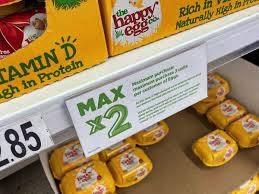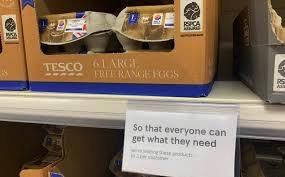 Following the decline in domestic production from 2001 onwards, the U.K. has sharply increased importation of eggs from the E.U. The number of imported consignments has risen from 422 in 2021 to 2,536 during the first eight months of 2023.
Following the decline in domestic production from 2001 onwards, the U.K. has sharply increased importation of eggs from the E.U. The number of imported consignments has risen from 422 in 2021 to 2,536 during the first eight months of 2023.
The decline in domestic production was due to the fact that operators of free-range and, in some cases, barn housing were unable to break even on the prices offered by retail chains. Producers were faced with rapidly escalating costs for fuel, labor and feed as a consequence of Brexit.
Producers and animal rights organizations are now justifiably objecting to the importation of shell eggs from flocks housed according to standards that are lower than those pertaining in the U. K. The second issue relates to outbreaks of SE infection from eggs supplied by Poland.
The National Farmers Union has questioned why eggs that do not conform to U.K. standards of welfare and food safety are imported. A spokesperson for the Department of Environment, Food and Rural Affairs (corresponding to USDA) stated, “The U.K. egg industry operates in an open market and the value and trade in egg commodities is set by those in the  supply chain including farmers, processors, wholesalers, retailers and consumers.”
supply chain including farmers, processors, wholesalers, retailers and consumers.”
The blame for the current situation lies mostly with retail chains that nickeled and dimed producers through the period of rapidly increasing costs. Only when domestic production had fallen by ten percent and some shelves were bare did supermarket chains respond. In some cases, specific chains offered ex gratia subsidies for farmers to resume production but his was too little and too late. Perhaps there is a lesson in here for the U.S.